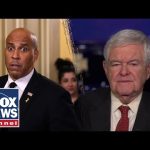The political and media spotlight has once again turned to Elon Musk, whose tenure as head of the Department of Government Efficiency (DOGE) under President Donald Trump has been marked by controversy, innovation, and speculation about his future. Recent reports suggest that Musk may soon step back from his role, with insiders citing the expiration of his special government employee status at the end of May. While the White House has dismissed rumors of an early departure as “garbage,” the chatter underscores the complex dynamics between Musk, Trump, and their shared mission to overhaul federal bureaucracy.
Musk’s appointment to DOGE was a bold move by Trump to cut government waste and streamline operations. Since January, Musk has spearheaded aggressive cost-cutting measures, reportedly saving billions by dismantling federal agencies and eliminating thousands of jobs. However, these efforts have drawn sharp criticism from Democrats and even some within Trump’s administration, who view Musk’s methods as disruptive and his public remarks as unpredictable. Despite this, Trump has consistently praised Musk’s contributions, describing him as “amazing” while acknowledging that his time in government may be limited.
The speculation about Musk’s exit comes amid growing frustration from both allies and critics. Democrats have seized on Musk’s controversial actions to paint him as a liability for Trump and the GOP. His recent $20 million backing of a conservative Wisconsin Supreme Court candidate ended in a significant loss, further fueling concerns about his political influence. Meanwhile, some White House officials reportedly view Musk’s high-profile presence as a distraction, with calls for him to return to his private ventures intensifying.
Despite the noise, Musk remains committed to completing his work with DOGE before stepping down. The billionaire has stated that he will leave public service only after achieving key milestones, including cutting $1 trillion in federal spending. His defenders argue that his unconventional approach is precisely what Washington needs to tackle entrenched inefficiencies. However, critics warn that his access to sensitive government data and ties to foreign markets, particularly China, pose potential risks.
As the clock ticks down on Musk’s 130-day term, questions linger about what his departure will mean for DOGE and Trump’s broader agenda. While some speculate that Musk could maintain an informal advisory role, others see his exit as an opportunity for Trump to recalibrate ahead of the 2024 election. Regardless of the outcome, Musk’s tenure at DOGE highlights the challenges—and opportunities—of bringing Silicon Valley disruption into the heart of Washington politics. Whether viewed as a visionary or a liability, Musk’s impact on government efficiency is undeniable and will likely shape debates about the role of private-sector leaders in public service for years to come.




